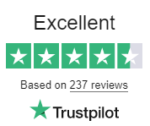Who Need Not Get a License to Contract?
People who have been in the building industry for a long time can attest that having good work ethics still gives one the best edge. Contractors who follow the law and understand that unlicensed contracting is dishonest is what clients look for. We already discussed that you could get penalties and fines from doing unlicensed contracting work. Still, there are other risks along with it.
If you illegally and unethically work in the QLD building industry without a proper license, you will not be entitled to get paid for the building work you perform, at all! It can be quite a waste of time, effort, and money to go ahead and carry out building work without getting properly licensed.
Why am I Not Entitled to Payment?
According to the Queensland Building and Construction Commission Act 1991 or the QBCC Act, carrying out building work without a license does not call for any monetary compensation whatsoever. The individual can claim payment for the necessary materials as well as the labour for the building work.
The following does not warrant remuneration:
- the supply of the worker’s own labour
- making a profit from the building work
- unreasonably acquired cost for supplying materials and labour
- any additional amount more than what was agreed on
- any expense paid for by the worker that solely benefits them
Take note that if you perform unlicensed building work, you’re still not entitled to claim payment under the Building Industry Fairness (Security of Payment) Act 2017. You can only do so if you carry out work that doesn’t require a license.
In the same way that some work does not require a license, some people do not require a license. These unlicensed contracting exemptions are clearly detailed in the QBCC Act, which we’ll elaborate on.
Who are the People Exempted from the License?
Under Schedule 1A of the QBCC Act, there are exemptions to unlicensed contracting. In other words, when these persons engage in building work, they will not be fined or penalized. So if you aren’t any of the following, you could be breaking the law!
- Employees – An unlicensed person who carries out building work for an employer who does hold a license of the appropriate class is exempted from the requirement of holding a contractor’s license.
- Subcontractors – A subcontractor who carries out building work for a licensed trade contractor is allowed to do so even if they are unlicensed, given that the building work is only to the extent of which is allowed by the class of license of the contractor. A licensed trade contractor refers to a licensed builder or contractor who is authorised to make building inspections.
- Partnerships – When in partnership with another person who is licensed to do building work to the scope of their license, they are considered part of the exemptions to unlicensed contracting.
- Owner-builders – If an unlicensed person holds an owner-builder permit and carries out work that is specifically permitted in the permit, it puts them under the unlicensed contracting exemptions.
- Design work by landscape architects – An unlicensed person is permitted to carry out their work if the individual is a landscape architect and does design work as part of being a landscape architect. Also, the design work is ordinarily done and part of the nature of a landscape architect’s work.
- Consumers – Consumers who engage one or more licensed contractor for building work fall under the unlicensed contracting exemptions, so long as the consumer himself does not perform building work.
- Other licenses – People who hold a nominee supervisor’s license, a site supervisor’s license, a fire protection occupational license, and a mechanical services occupational license are exemptions to unlicensed contracting. They are all permitted to perform their work to the extent of what is allowed under the license.
- Head contracts to carry out building work – If the building work is not residential construction or domestic building work and will be carried out by a licensed contractor, an unlicensed person who enters into a contract regarding the building work does not require a license. The person will only be infringing the law if they allow building work to be carried out by an unlicensed person.
- Tenders and offers – An unlicensed person can submit a tender to carry out building work as long as it is not residential construction or domestic building work and it will be seen through by a licensed worker.
- Public-private partnerships – A special purpose vehicle that carries out building work under a public-private partnership fits under the exemptions to unlicensed contracting if the building work will be done by an appropriately licensed contractor. They will only be violating the law if the special purpose vehicle makes it possible for an unlicensed person to carry out the building work.
- Prescribed government projects – An unlicensed person who enters into a contract, submits a tender, or makes an offer with the government for building work is also exempt from the requirement to hold a license. They don’t break the law just because they cause the building work to be done by a licensed contractor, so they are still part of the unlicensed contracting exemptions.
What to do: Get Qualified!
Before signing any contracts, take some time to review the building work that is prescribed. Ensure that your license covers the scope of work that is involved with the building work. It is better to be sure rather than get into trouble with the law.
A much better solution is to get qualified to cover a bigger scope of work. A contractor may hire other workers to do work that you are not licensed to do. As such, if you regularly involve yourself in work that also falls into another license class, it would be best to be qualified to do other building work.
Doing work and not getting paid for it because you lack the license would be a terrible, to the point of traumatizing, experience. What’s more, is that you’ll have unlicensed contracting fines and penalties. If you’re not part of the exemptions to unlicensed contracting, get qualified to perform building work to avoid any problems. All told, it is the proper solution to avoid continuously putting yourself at risk.
Let us help you become qualified for your chosen trade. Ask us how today! Call 1300 656 498.











